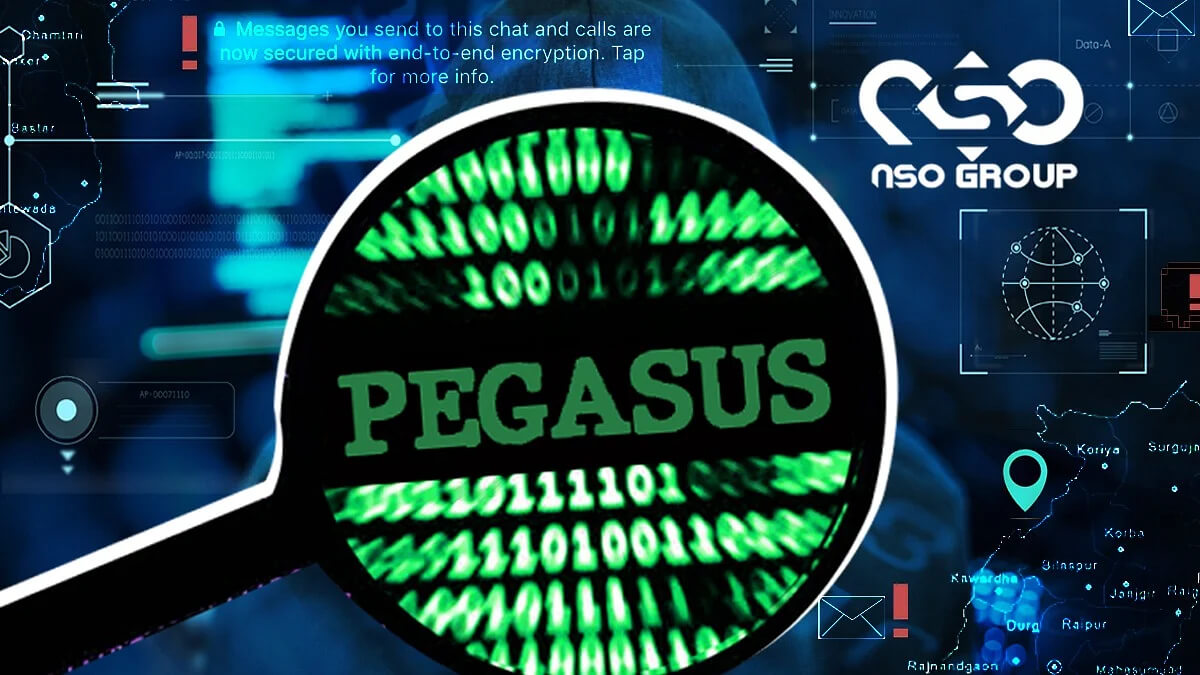The New York Times (NYT) reported on Friday that the Indian government had bought the Pegasus spyware from Israel in 2017 in furtherance of their weapons purchase deal. Subsequently, the Editors Guild of India appealed to the Supreme Court to take cognisance of the claims made in the article.
According to the report, while the Israeli government allegedly sought to prevent Pegasus from being used as a repressive tool, it was sold to countries like Poland, Hungary, and India despite their “questionable records on human rights.” The decision was made during Prime Minister (PM) Narendra Modi’s visit to Israel in 2017, which was the first visit by an Indian PM to Israel.
This was seen as a shift from India’s original “commitment to the Palestine cause,” which marked a turning point for the two countries’ originally troubled relations. The article said that during this visit, India signed a deal with Israel to buy a “package of sophisticated weapons and intelligence gear worth roughly $2 billion.” Pegasus and a missile system were the “centrepieces” of the deal. The article also highlighted that soon after, in July 2019, India also strengthened the two countries’ ties by voting in Israel’s favour and denying observer status at the United Nations Economic and Social Council to a Palestine rights organisation.
Pegasus is a spy software created by an Israeli surveillance firm, the NSO group, and uses malware links to target a user’s device. Once the link is opened, the surveillance spyware is installed on the phone. Following this, the spyware sends private data, including passwords, contact lists, text messages, and live voice calls, to the operator’s command and control.
In July 2021, the French non-profit organisation Forbidden Stories and Amnesty International published data to substantiate a collaborative investigation called the Pegasus Project, which shows that Israeli spy software Pegasus targeted several Indian activists, journalists, and political leaders.
Among the Indians targeted were two ministers of Modi’s cabinet, three opposition leaders, one constitutional authority, current and retired heads of security organisations, and 40 senior journalists and activists.
Following the release of the NYT article, opposition leader Rahul Gandhi called the use of Pegasus against critical government officials and Indian citizens “treason.” Similarly, another leader of the opposition Congress party, Mallikarjun Kharge, questioned: “Why did Modi Govt act like the enemies of India and use a warfare weapon against Indian citizens?”
Modi Govt bought Pegasus to spy on our primary democratic institutions, politicians and public. Govt functionaries, opposition leaders, armed forces, judiciary all were targeted by these phone tappings. This is treason.
— Rahul Gandhi (@RahulGandhi) January 29, 2022
Modi Govt has committed treason.
Furthermore, the Editors Guild of India released a press statement saying that it had approached the panel set up by the Supreme Court in October last year to investigate the matter and urged them to take cognisance of the NYT report. The communication also highlighted that the claims of the media report were “in stark contrast” to the Indian government’s statements, which the Guild accused of being “vague and non-committal.”
While there has been no response from the government, the issue is likely to be raised by opposition leaders in the budget session at the Parliament, which started on Monday. Already, there has been a call for the Union Minister Ashwini Vaishnaw for denying claims and lying to the Parliament last year. However, similar to its position following the 2021 Forbidden Stories and Amnesty International’s publication, the Indian government is likely to deny claims of its purchase of the spyware.

